
OR
Post-earthquake Reconstruction
3 years on, home rebuilding by quake victims still uncertain (with video)
Published On: April 1, 2018 09:50 AM NPT By: Bhadra Sharma
LALITPUR, April 1: Kedar GC received Rs 50,000 rupees as his first installment housing grant just a month ago, nearly three years after the devastating earthquake of 2015 that killed around 9,000 people and left many more injured.
Like many of his neighbors, GC, who has been sheltering under a makeshift tent after his mud and stone house imploded, has not yet made up his mind about rebuilding . "I paid out half the grant money to repay a loan that I took for buying a buffalo," said GC, who is a farmer by occupation and a resident of remote Dukuchhap village. "Rest of the money was spent retrieving land ownership certificates that got buried under quake debris," he said.
The government has distributed the first tranche of the reconstruction grant to 767,705 households. But most grant recipients who were interviewed for this story said they have not yet started the reconstruction work and that the money is insufficient. So, they want to settle outstanding loans and other household matters first. People complain that it costs at least Rs 2 million to rebuild a house as per the designs approved by technicians at the National Reconstruction Authority (NRA).
Quake survivors in Lalitpur have yet to start reconstruction because of a severe resource crunch. The availability of bricks and other construction materials at subsidized prices has been a major issue. "I have no more than one ropani of land and if I sell it to rebuild my house there will be nothing left to feed my family," GC elaborated . He will get maximum one million rupees for the land if he sells. "I won't need money if the government provides sufficient bricks and other construction materials at subsidized rates. If not, I will have to continue living this way for two or three more years."
This month, the government will mark the third anniversary of the big earthquake. But the situation of many quake survivors is yet to return to normal.
Among the survivors, Dhruba Raj Tuladhar, 69, of Machhindra Bahal, Bungmati, is also delaying plans to rebuild although he received the first tranche of the reconstruction grant some two months ago. "The money is not even adequate for clearing the quake debris," he said .
Tuladhar's four-story house crumbled. Two of his sons are also living under makeshift tents now. Locals and relatives helped him demolish the damaged structure. As he has no source of income, Tuladhar has lost any hope of rebuilding soon. "My left hand is paralyzed and I cannot work. I don't see any possibility of starting reconstruction anytime soon."
An assessment carried out by NRA shows that 18,000 plus householders are either above 70 years old, or disabled. So they are unable to rebuild. Furthermore, the poorer among them do not have the self-confidence to start reconstruction, which is an ardous undertaking.
Most earthquake survivors interviewed were unaware about the government announcement of Rs 2.5 million concessional loans for reconstruction. Others complained of red tape and the strict conditionalities, such as road access .
Out of 60 houses in Machhindra Bahal, from where the grand post-earthquake reconstruction campaign was flaged off by the government, only four have been reconstructed and five others are under reconstruction. "Only people who are employed or have personal wealth started construction. The rest still have no idea what to do," said Dhruba Raj Tuladhar, a carpenter by calling who has just started to rebuild his house . "My daughter got a job at NRA so I was able to start rebuilding. I think funds are a problem . Do you know how to access a bank loan?" he said.
The government has allocated billions for post-quake reconstruction in its annual budgets. Besides, donors have pledged US$ 4.1 billion to assist the reconstruction process. Still, the process is not up to people's expectations and tens of thousands continue to live in misery.
A study conducted by Humanitarian Accountability Monitoring Initiatives has concluded that post-earthquake reconstruction has been disappointing because of patent politicization and lack of proper coordination with line ministries. "NRA's standing as a nodal agency for reconstruction has not been recognized by the line ministries and coordination with them has been a challenge," states the report.
According to the report titled Effectiveness of Reconstruction Aid in Nepal, the reconstruction authority failed to engage international donors and sign agreements with them as pledged during the International Conference on Nepal's Reconstruction held in June 2015.
NRA chief Yubaraj Bhusal admitted that reconstruction is yet to gain momentum in Kathmandu despite some progress made in the other 29 quake-affected districts. Out of the total 101,600 houses destroyed by earthquake, only 4000 have been reconstructed in the Valley, according to him.
"Administrative difficulties in releasing government-announced reconstruction loans, disputes among family members over parental land and delays in house pooling delayed reconstruction in the Valley," said Bhusal.
Only 710 households in Kathmandu have so far accessed the government announced Rs 2.5 million concessional loans, banks are reluctant to issue the loans, citing liquidity crunch, and the government is now planning to go for re-financing to meet victims' expectations.
The authority expects that all quake-affected households will receive the second tranche loans by mid-April.NRA has warned first tranche receptients to either begin reconstruction or return the money. As of now, 328,848 houses out of the total identified as beneficiaries have applied for the second tranche. But quake survivors said they are in no position to actually start rebuilding.
As per the loan terms, people get the first tranche once they are recognized as quake survivors and the second tranche after the foundations are laid and certified by technicians to be earthquake resilient. They get the third tranche after it is certified that the reconstruction meets government standards.
"I am not in a position to rebuild right now because I don't have enough money. If the government wants to take the money back , I will return it," said Dhruba Raj Tuladhar.


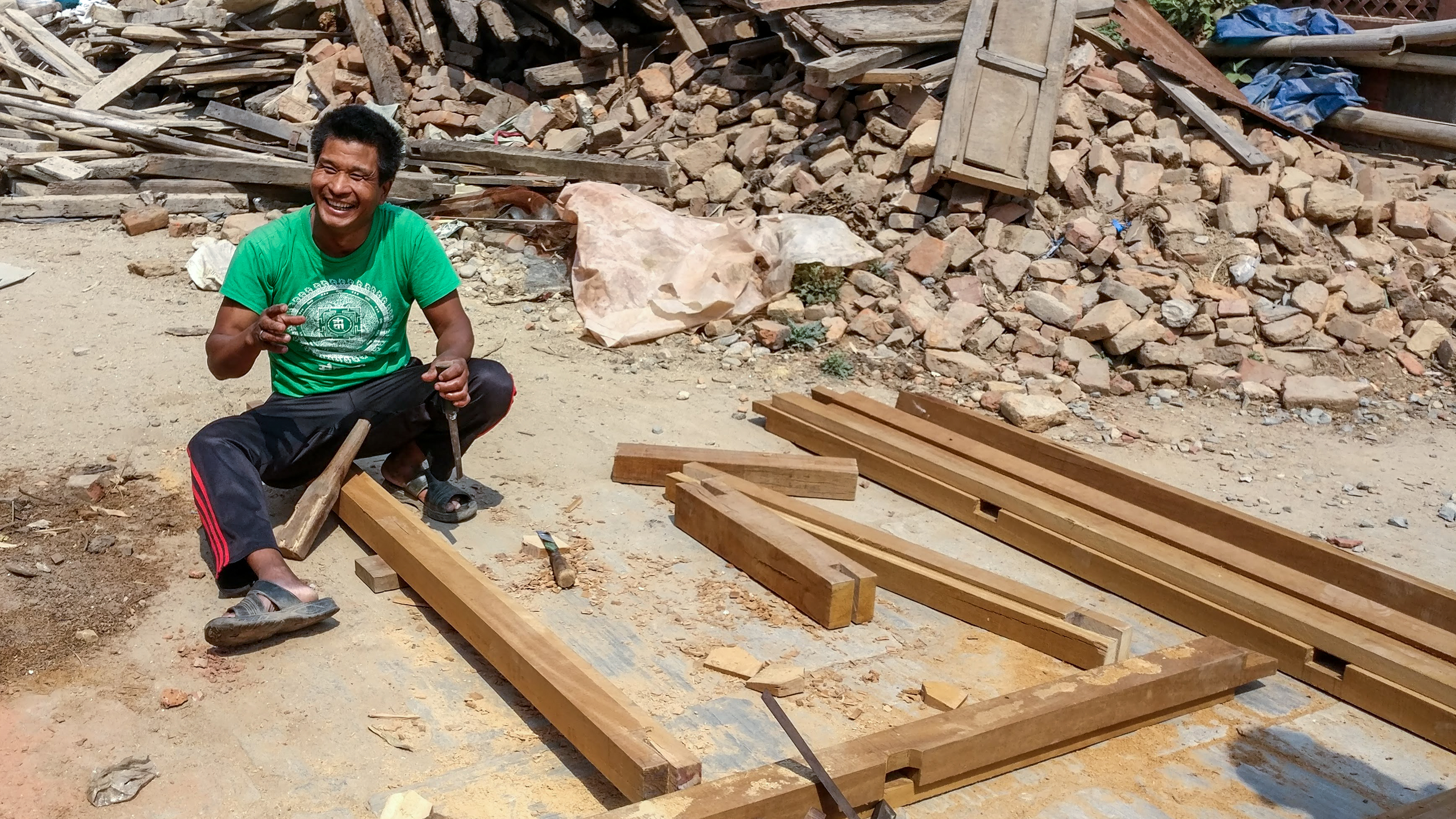

You May Like This

District HQ wears a deserted look as quake victims return home
RASUWA, March 5: After living a displaced life for more than 33 months, a large number of quake victims have headed... Read More...

Rs 300,000 lump sum for quake victims rebuilding on their own
KATHMANDU, Feb 18: The National Reconstruction Authority (NRA) has decided to provide the total grant of Rs 300,000 in lump sum... Read More...

First tranche to quake victims by mid-August not possible: Ministry
Additional manpower for local bodies sought to expedite process ... Read More...


Just In
- Gold price increases by Rs 1,400 today
- Kathmandu continues to top the chart of world’s most polluted city
- JSP Central Executive Committee meeting today
- Ambassador Adhikari presents his letter of credentials to Turkish President Erdoğan
- Bajhang by-election: Construction of Taklakot Road is common election agenda of candidates
- Meeting of Finance Committee being held today to discuss 2025/25 budget
- Stakeholders call for transparency as Beijing pushes for early implementation of BRI projects in Nepal
- Special Court orders judicial custody for Sunil Paudel over illegal wealth acquisition charges











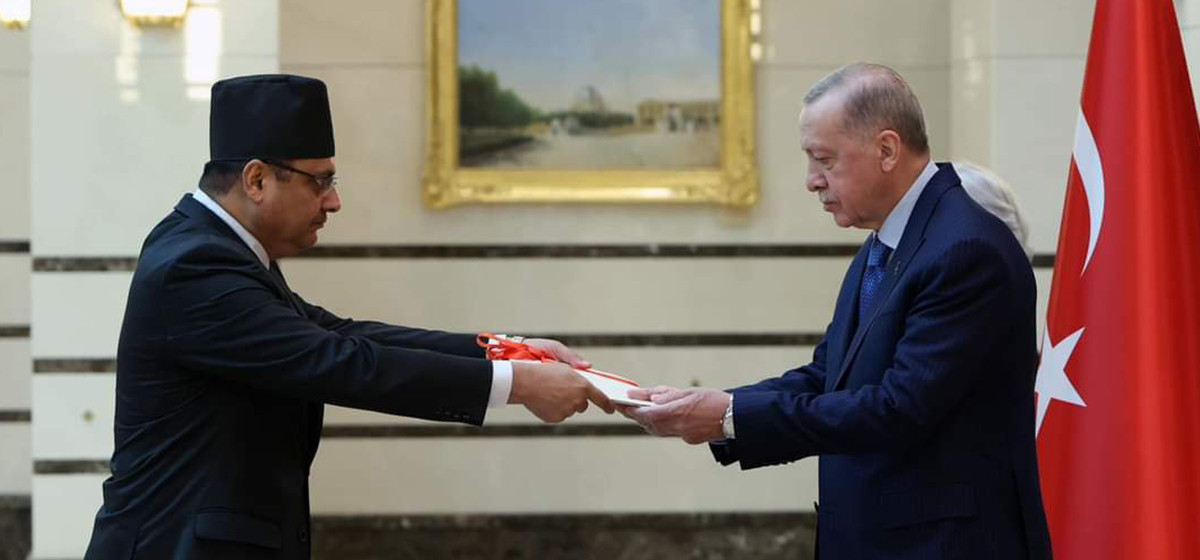
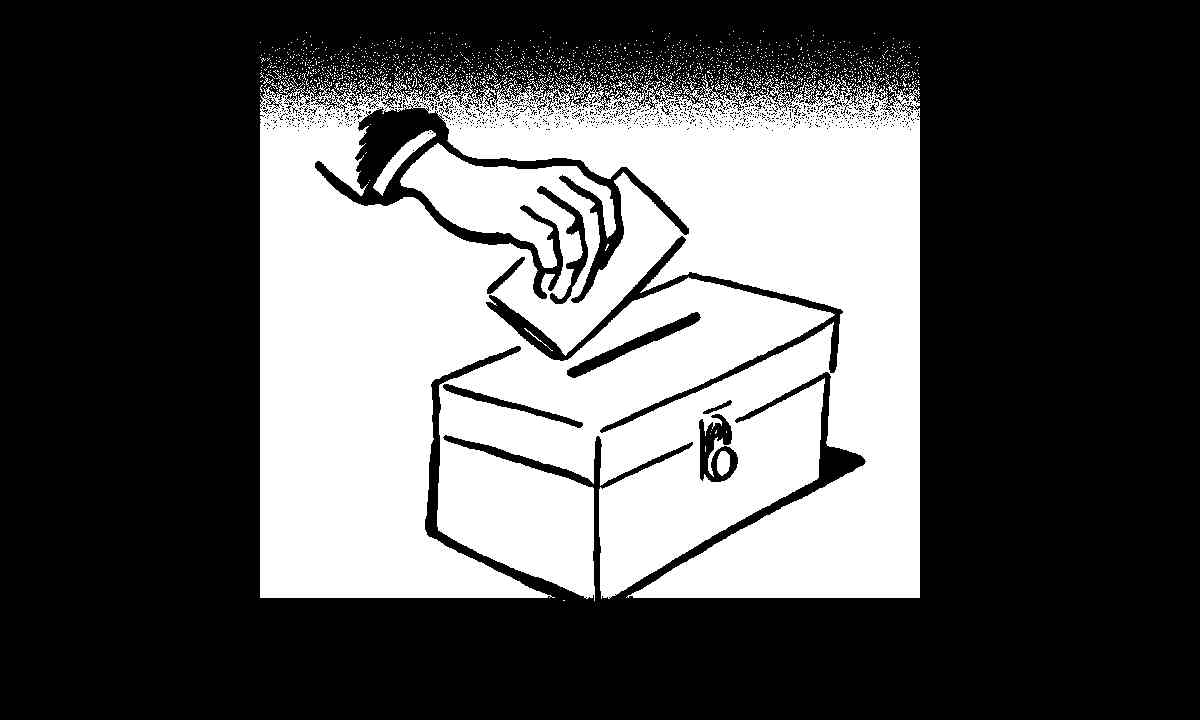
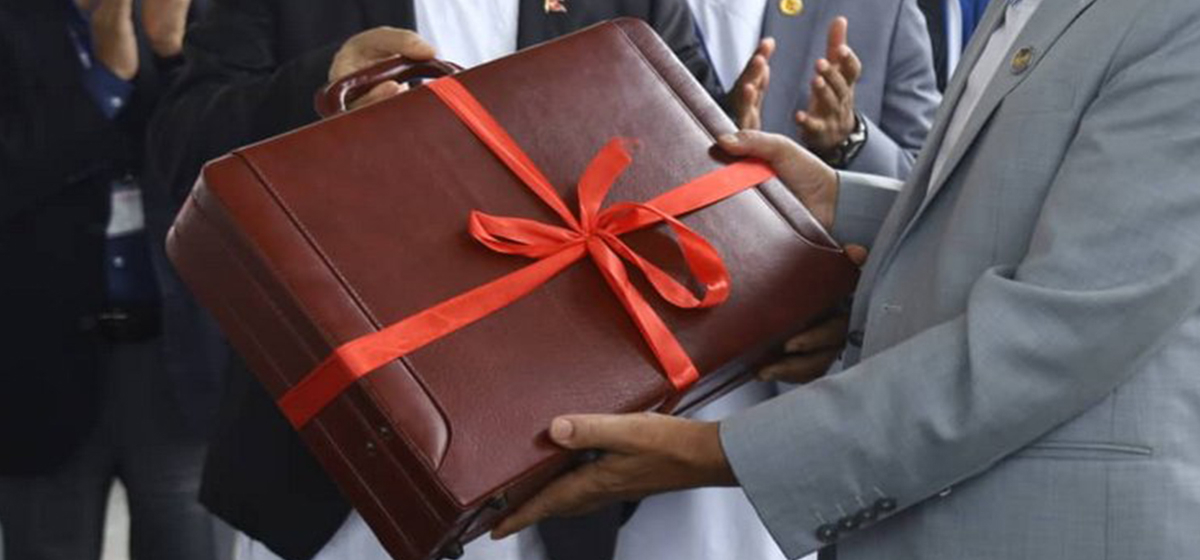

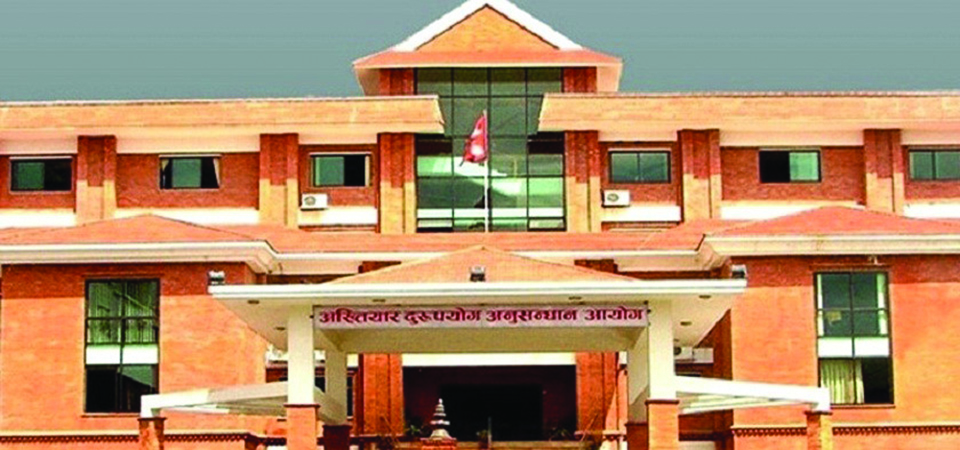
Leave A Comment